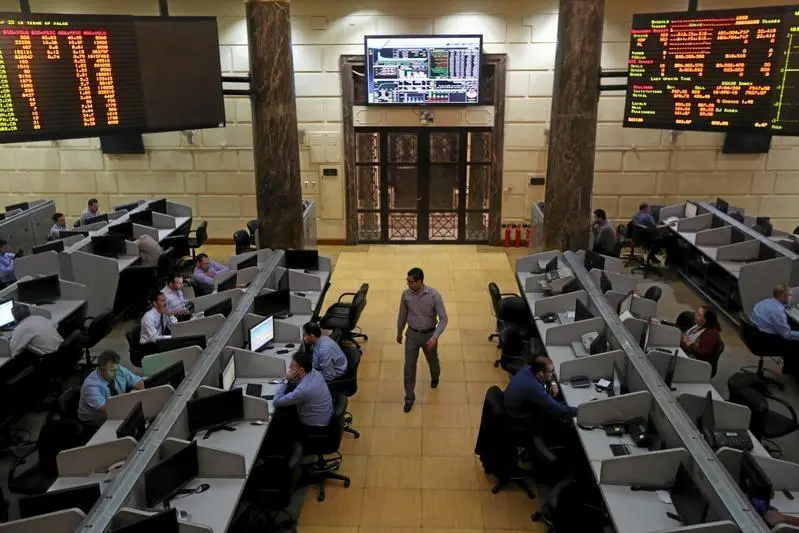PHOTO
The Egyptian economy has undergone a number of changes over the past 12 months affecting investors and the asset management industry, Mena FM takes a closer look at the latest developments
As one of the region's largest economies, Egypt has provided fund managers with a happy hunting ground over the years. However, recently things have slowed, as uncertainty in the Egyptian market has emerged.
According to the latest IMF World Economic Outlook published in April, Egypt saw GDP growth of 4.2% during 2015. However, that is set to slow to 3.3% during 2016, before rising to 4.3% in 2017.
Large-scale infrastructure projects such as the New Suez Canal - which was completed in 2015 - and plans for a new administrative capital 28 miles east of Cairo have helped to address unemployment and spur economic growth. Yet there remain a number of economic challenges for Egyptian authorities. Financial support from GCC countries has helped boost the Egyptian economy in recent years, but the ongoing low oil price environment is likely to raise questions about the sustainability of such support over the longer term. Indeed, foreign direct investment has yet to reach pre-revolution levels, most recent data from the UN Conference on Trade and Development have shown, as international investors have stayed away from Egypt.
In May, rating agency Standard & Poor's downgraded the outlook for Egypt's long-term sovereign credit rating to negative from stable. It noted a number of challenges facing the Egyptian economy, including "foreign exchange shortages, and external and fiscal financing pressures".
Forecasting a widening of the current account deficit over the next three years, Standard & Poor's foresaw weak exports and tourism receipts to have an impact on the country's foreign currency reserves. It also noted that fiscal consolidation had proceeded more slowly than anticipated, although lower energy prices and revenue raising measures would contribute to lower deficits.
"The negative outlook reflects our view that Egypt's external and fiscal vulnerabilities might increase further over the next 12 months," it noted. "This could dampen the country's economic recovery and exacerbate socio-political challenges."
Recent PMI data revealed a worsening view of the non-oil private sector in April with business conditions worsening for the seventh straight month, as output new business and employment fell sharply.
"Egypt's private sector continues to struggle amidst the FX shortage," noted Jean-Paul Pigat, senior economist at regional bank Emirates NBD. "Although further EGP weakness will eventually help lay the foundations for an economic recovery, in the short term uncertainty over the exchange rate could see additional declines in output, and a further rise in inflationary pressures."
Devaluation
In March, the Central Bank of Egypt made a long-awaited move to devalue the Egyptian pound. Following months of speculation, devaluation was welcomed as a long overdue measure to help bolster the embattled economy.
While there will be issues for authorities to address in the short term, many commentators agreed that the move was a step in the right direction. Devaluation led to a rise in the Egyptian stock market as foreign investors sought to regain exposure to the market. Indeed, the $46bn Egyptian Exchange saw turnover double between February and March, according to data from the World Federation of Exchanges.
Other measures to entice more foreigners to the market have also been enacted. A law applying a tax of 10% on capital gains - although a 10% tax on dividends was kept in place - was postponed for two years in May 2015. The tax had been blamed for a drop-off in activity in the market by investors.
Although a number of positive steps have been taken to help restore investor confidence, there remain a number of challenges still to overcome. Restrictions on repatriation of earnings is likely to provide a stumbling block for external investors concerned at being able to pull their money out of a market which has a recent history of instability.
Yet, with devaluation and other measures, authorities have shown a willingness to get to grips with some of the challenges facing foreign investors.
Market performance
While authorities have begun to make changes to the regulatory environment for investors, one of the other main considerations may be the returns on offer.
The Egyptian market suffered from a torrid year's performance during 2015, as the S&P Egypt BMI Index sank to a -26.2% loss. Although it was not the worst performing market, last year's double-digit loss jars with the 28.9% gain recorded during 2014.
So far in 2016, the market has performed better, with a flattish gain of 0.2% in the year to 30 April. It may not, however, be enough to tempt funds managers if better returns can be found elsewhere in the region.
Additionally, the drop-off in oil prices and concerns over a global economic slow-down have prompted firms across the region to reconsider listing plans as investors become more risk averse in the uncertain economic conditions.
Last year, Egyptian IPOs raised an estimated $817.5m, according to global consultancy EY, including Emaar Misr, which raised capital of $298m during the second quarter of 2015. Egyptian firms were among several large public offerings, such as Integrated Diagnostics, Edita Food Industries and Orascom Construction.
During the first quarter of the year there were just two IPOs in the region. However, the Egyptian Exchange played host to one of the two, with the listing of dairy firm Arabian Food Industries Company (Domty) in March, which raised around $144m.
While listing activity in Egypt picks up is likely to depend on broader market conditions, measures introduced by authorities seem, so far, to have focused on encouraging investment activity. Whether investors flock to the Egyptian market remains to be seen.
© MENA Fund Manager 2016





















